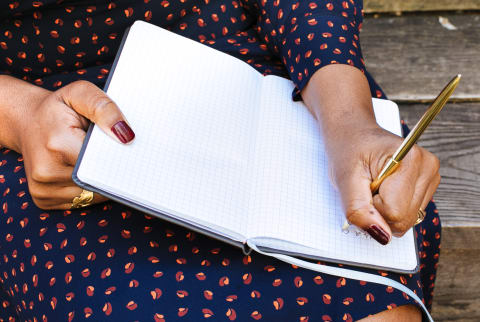Advertisement
Being Black In America Comes With A Unique Kind Of Anxiety. Here Are 4 Ways To Cope


These days, African American men, women, and children are mistreated and sometimes killed for doing normal things that white people do or could do without a second thought or consequence. In this reality, it is very hard not to worry.
Trayvon Martin walked through a middle-class neighborhood on his way home. He did not walk across a dangerous freeway. He had purchased a bag of Skittles from a nearby store. He did not make it home that night. Instead, he was killed by a neighborhood watchman who had been told to stay in his car and not approach Trayvon.
Two years later, Tamir Rice was 12 years old when he played in a park for the last time. He was shot by police who indicated that he had been told to drop his "weapon."
How many times did you watch the video or listen to Diamond Reynolds as she kept her composure while pleading with the police officer, who had shot her boyfriend, to tell her that her boyfriend wasn’t dead? My own heart broke even more for her daughter who sat still in the back of the car. You never heard the child scream or cry. At some point, she told her mother, "It's OK. I'm right here with you."
These stories go on and on because police kill Black people on 300 out of 365 days each year.
There is a sickness in our society that has given you (as a Black person) plenty of reason to worry. When the story of Trayvon's death unfolded in the television news coverage, you may have felt keyed up, tense, and angry. As time passed, you may have become emotionally numb to police violence, but one year later, when you were subjected to the trial for Trayvon's 2012 murder, you relived much of the same intense emotions.
Clinically, experts say that your emotional response should be in proportion to the stressful situation. I acknowledge that it isn't so straightforward and not very easy to explain, but while the threats in our society that make you worry are real, there are ways to cope that can be helpful.
How to cope with the mental impacts of racism:
- Journal: Be intentional about how you think about and manage reactions to racial injustice. Take time to write your thoughts and feelings in a journal. Otherwise, the thoughts replay in your mind and intensify your worry.
- Be introspective: Even if you do not have the opportunity to journal, ask yourself, What about all of this is most upsetting to me? Maybe your heart hurts for the murdered child's mother. Perhaps you wonder if things will ever get better.
- Limit social media exposure: If it is in the news, you may have to begin by limiting your exposure to social media, where the outrageous scene plays over and over. Though it is good to be informed, think about what is in your control and how exposure to senseless violence undercuts your psychological fortitude.
- Get active: Join or start an advocacy group that challenges the use of force in policing or join a larger group, such as Moms Demand Action for Gun Sense in America. This was one step taken by Lucy McBath, the mother of Jordan Davis, who was killed because he was enjoying loud music with his friends. Mrs. McBath is now a United States congresswoman.
The thing about anxiety is that the cause of the actual anxiety does not matter. What matters is what you do in response to your fear and how you manage your worry. The cause of your anxiety could be frustration about never-ending disrespect from a supervisee, agitation about a potential bully at your daughter's school, or the police response to a shooting in the next town over. First, assess your mindset about the situation. If you can, join an advocacy group—pushing in the same direction with like-minded others will be more helpful than re-exposing yourself to the TV drama from your kitchen table.
Excerpted from The Unapologetic Guide to Black Mental Health by Rheeda Walker, Ph.D. New Harbinger Publications, Inc., copyright © 2020 Rheeda Walker.